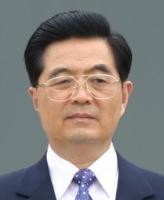The conventional wisdom in U.S. policy circles is that China’s support for autocrats in the Middle East, most recently manifested by its veto of a proposed U.N. Security Council resolution sponsored by the Arab League that called for Syria’s Bashar al-Assad to step down, has placed Beijing on the wrong side of history. Last week, U.S. Secretary of State Hillary Clinton, speaking at the conclusion of the Friends of Syria conference in Tunis, warned the Chinese that “they are setting themselves against the aspirations not only of the Syrian people but of the entire Arab Spring." The implication is that Beijing will find itself increasingly isolated as successor governments installed after revolutionary upheaval decide to punish China for its support for the old regimes.
Last September, I described China’s hands-off approach to the Arab Spring as a gamble: Beijing was hoping that although post-revolutionary governments might initially view China unfavorably, over time, the lure of forging mutually beneficial ties with Beijing would override any resentments. Six months later, the Chinese gamble seems to be paying off.
A year after the revolution that toppled long-time Tunisian President Zine El Abidine Ben Ali from power, and days after Clinton herself made her pronouncements about China’s reaction to the Arab spring, China signed three development projects with the new Tunisian government. None of them can be described as grandiose in scale. Nevertheless, they are competitive with the $190 million the United States has provided to assist the transition in Tunisia. Moreover, they fall into the pattern of China’s “no strings attached” aid and development offers, which many governments find more attractive than the conditionality-laden projects often proffered by the West.

